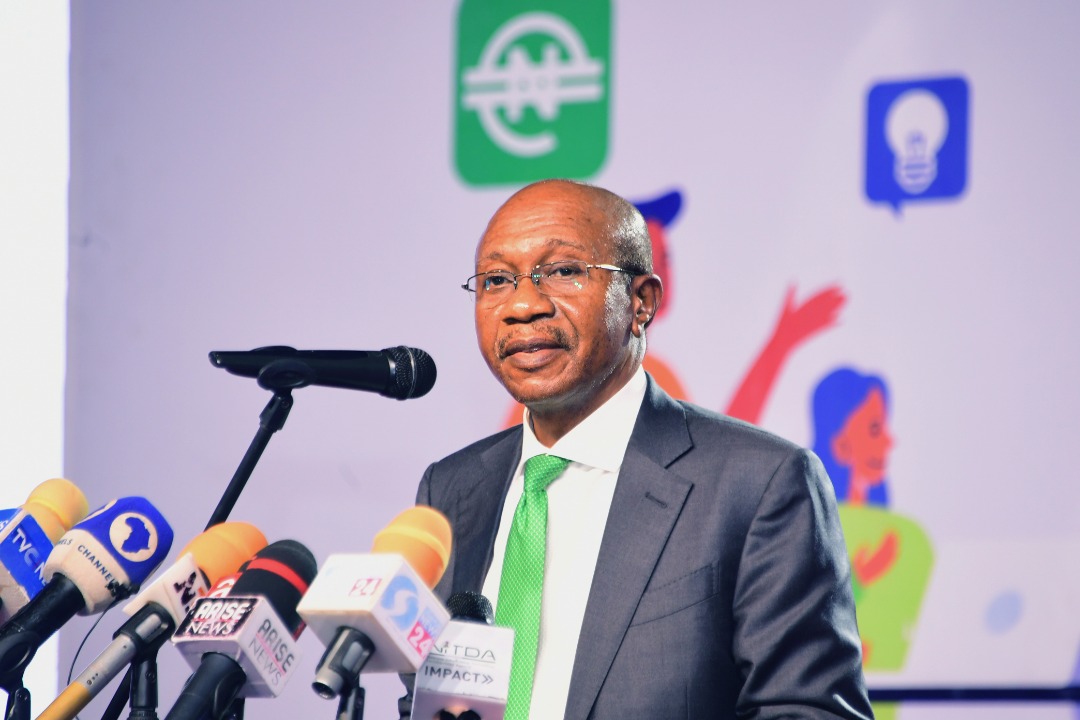In what appears like a Tsunami, the Central Bank of Nigeria (CBN) recently issued a circular stipulating a cumulative 20 years for executive management and Non-executive Directors (NEDs) of deposit money banks (DMB) and financial holding companies (HoldCos) will see many of the bank chairmen affected.
The rule says bank executive directors (EDs), deputy managing directors (DMDs), managing directors (MDs), and non-executive directors (NEDs) can only serve a cumulative tenure of 20 years across the banking industry.
The directive is contained in a circular addressed to all deposit money banks (DMBs), signed by Chibuzor Efobi, director of the financial policy and regulation department, CBN, and seen by TheCable.
The circular was a revision of the regulatory requirements for the tenure of executive management and non-executive directors of DMBs and financial holding companies in the Code of Corporate Governance for Banks and Discount Houses.
CBN said the tenure review was part of measures aimed at strengthening governance practices in the banking industry.
- FG beefs up war against fake drugs with Kano Coordinated Warehouse Centre
- Elections: Police confirm arrest of Wikki Times publisher
“The tenure of executive directors (ED), deputy managing directors (DMD) and managing directors (MDs) shall be in accordance with the terms of their engagement approved by the board of directors of banks, subject to a maximum tenure of ten (10) years,” the apex bank said.
“Where an executive who is a DMD becomes the MD/CEO of a bank or any other DMB before the end of his/her maximum tenure, the cumulative tenure of such executive shall not exceed twelve (12) years.
“However, for an executive (ED) who becomes a DMD of a bank or any other DMB, his/her cumulative tenure as ED and DMD shall not exceed 10 years.
“Non-executive directors (NEDs), with the exception of independent non-executive directors (INED), shall serve for a maximum period of twelve (12) years in a bank, broken into three terms of four years each.
“EDs, DMDs and MDs who exit from the board of a bank either upon or prior to the expiration of his/her maximum tenure, shall serve out a cooling-off period of 1 year before being eligible for appointment as a NED to the board of directors.
“NEDs who exit from the board of a bank either upon or prior to the expiration of his/her maximum tenure of 12 years (three terms of four years each), shall serve out a cooling-off period of 1 year before being eligible for appointment to the board of directors of any other DMB.”
CBN added that the above tenure requirements shall apply “effective the date of this circular”.
The implementation of the new rule will see the exit of many top bank executives in Nigeria.
Bank chiefs Affected
Jim James Ovia, founder of Zenith Bank in 1990. He retired from the bank in 2010 following a similar CBN policy which limited the tenure of banks’ chief executive officers (CEOs) to a maximum of 10 years. However, the billionaire was later appointed as board chairman and non-executive director of the bank in 2014.
Tony Elumelu at 34-year-old was the CEO of the defunct Standard Trust Bank, a company he later merged with United Bank for Africa (UBA) in 1997. With the merger, he remained as the bank’s CEO and served for 13 years until his retirement in 2010 when the said policy of 10-year tenure limits for bank CEOs was implemented by the CBN. Elumelu was appointed chairman of UBA in 2014, replacing Ambassador Joe Keshi.
Segun Agbaje started off at Guaranty Trust Bank (GTBank) — now Guaranty Trust Holding Company (GTCO) — as a pioneer staff in 1991 and rose through the ranks to become executive director in the year 2000 and deputy managing director in 2002. Agbaje was later appointed as the substantial MD and CEO of GTBank in June 2011, when Tayo Aderinokun passed.
Herbert Wigwe: After over 10 of service, Wigwe left GTBank as an ED to co-lead the transformation of Access Bank Plc in March 2002 as DMD. He was appointed group managing director/CEO effective January 1, 2014 and served in that capacity till May 2022. Wigwe was subsequently appointed a non-executive director of the bank effective May 2022.
The new regulation, according to the CBN official who pleaded to remain anonymous, would also pave way for young bankers to aspire to get to executive levels, knowing fully well that those occupying such positions would not stay there forever.
Analysts say executive positions at the Holdcos not subject to the CBN tenure restrictions
Meanwhile, analysts at Proshare, a Lagos-based research and information platform, argued that in the attempt to put limits on the tenure of bank executives, the CBN lumped the parent or Holding companies of banks with their subsidiaries, describing it as a “flawed move as local financial holding companies engage in businesses well beyond banking note observers.”
The analyst pointed out that Nigeria’s financial Holdcos run businesses ranging from banking and finance to trading in equities and Fixed Income assets, and investments in fintech, agritech, insuretech, Information Communication Technology (ICT), and alternative asset finance.
According to Proshare, the regulatory oversight for a few of these activities come under the Securities and Exchange Commission (SEC), the National Communications Commission (NCC), and some Self-Regulatory Organisations (SROs) such as the Nigerian Exchange Group (NGX), FMDQ, AFEX, NASD, and the Lagos State Commodities and Futures Exchange (LCFE).
The Analyst said: “Therefore, the CBN’s attempt at regulating the tenure of bank executives and that of their financial Holdcos without the agreement of other financial market and communication regulators, according to analysts, represents a ham-fisted overreach of power and responsibility.
“The notion that bankers like Mr. Herbert Wigwe former CEO of Access Bank, Mr. Segun Agbaje, former CEO of GT Bank, and Mr. Jim Ovia, former CEO of Zenith Bank would be caught by CBN’s new tenure arrangement is wrong. The gentlemen manage Holdcos of which the aforementioned banks are subsidiaries. Their executive positions at the Holdcos are not subject to the CBN tenure restrictions as Holdcos are not banks but constellations of different financial and technology-related businesses.
“The different lines of Holdco businesses have separate regulators, meaning that the CBN cannot unilaterally impose tenure limits on their executives.”

 Join Daily Trust WhatsApp Community For Quick Access To News and Happenings Around You.
Join Daily Trust WhatsApp Community For Quick Access To News and Happenings Around You.

